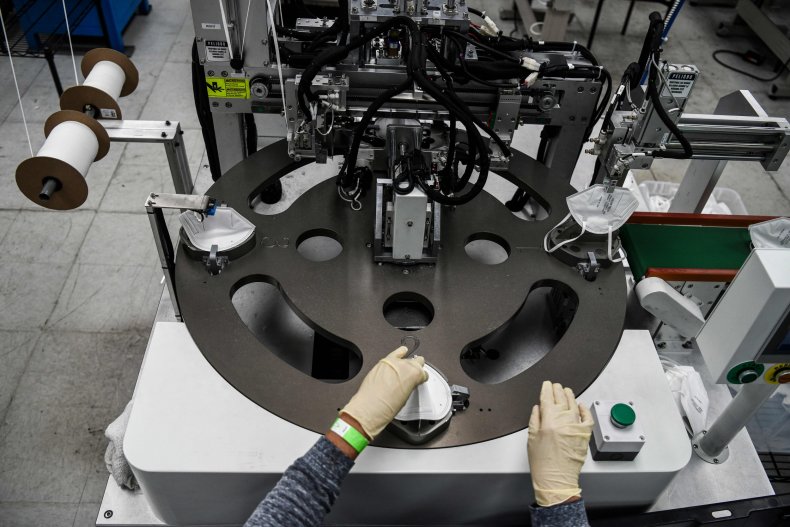GILES KYSER

The U.S. public health system is part of our country's center of gravity: a critical sustaining element of our society and a comparative advantage that sets us apart from—and supports—other parts of the world. But our system is not without its challenges. We witnessed during the COVID-19 pandemic how a vulnerable healthcare system exposes our communities to a cascading set of problems, highlighting just how important it is to strengthen our public health infrastructure.
Over the last year, our healthcare workers and first responders struggled against equipment shortages. At the same time, the American workforce experienced a screeching halt to the economy. While the private sector stepped in to fill the gaps they could, the lack of both consumable and durable personal protective equipment (PPE) for healthcare workers was a glaring hole and revealed a critical vulnerability to our healthcare center of gravity.
America possesses the resources to produce and distribute critical medical equipment in times of crisis, so why couldn't we?
The answer is troubling: Long a major trade partner, China displaced American domestic manufacturing through subsidies, currency manipulation, forced labor and aggressive harvesting of critical raw materials required for medical equipment.
While our ties to the People's Republic in many cases make economic sense, in critical lines of operation that protect our healthcare professionals and the patients they treat with critical medical supplies, it simply does not. The COVID-19 pandemic highlighted a dangerous reliance on an unreliable partner, revealing a clear need for a domestic supply chain to support critical American industries.
Counterfeit PPE from China, unexpected delays, price gouging and complaints of low-quality materials were just some of the problems our healthcare system experienced as a result of this reliance. Reports of Chinese pressure on trade partners and even the World Health Organization were others. All these issues add up to a clear need for a policy that shores up our critical industries against external threats.
And this doesn't have to happen again. President Biden's push to promote local manufacturing and reduce dependency through his "America's Supply Chains'' executive order is a solid step in this direction. To truly strengthen our country against the challenges we experienced during COVID, though, we must go further and include critical PPE in this plan.
U.S. healthcare workers need adequate resources to protect and be protected; our country must answer this need with efforts to promote domestic manufacturing of critical equipment and reduce reliance on unreliable partners for current use and within Federal and State Contingency/Strategic Stockpiles.
Specifically, the administration should incentivize the domestic production of emergency medical equipment so our healthcare system can operate safely and efficiently when it matters most. Solutions include a strong economic policy that supports "Made in the USA" manufacturing in critical industries through a Manufacturing Reserve Corps, thus boosting the American economy and reshoring valuable jobs.
Independence from substandard critical durable and consumable PPE not only helps our communities; it ensures our ability to answer global needs and make good on our commitment to support the international COVID response effort. In short, American companies can "do good and do well!"
While China relies on questionable methods to build its economy and coercion to increase its global market share, we must rely on our values and comparative advantage to fulfill the needs of our healthcare system. By incorporating critical consumable and durable PPE into the Biden Administration's supply chain plan, our nation will be poised to not only shore up American manufacturing, but to protect vulnerable communities around the world by sharing the strength of our system.
A strong domestic healthcare system requires a robust supply chain based on production we can trust. This is exactly why we should support domestic manufacturing of critical equipment before the next crisis hits.
The frontlines of our most important challenges are not in a traditional war zone: They are here at home, where critical industries are fighting every day to support the world's first responders while creating high-quality employment throughout the supply chain supporting this critical capability.
Let's make sure we enable American companies that truly follow a holistic "made in the USA" approach to meet this noble purpose.
No comments:
Post a Comment